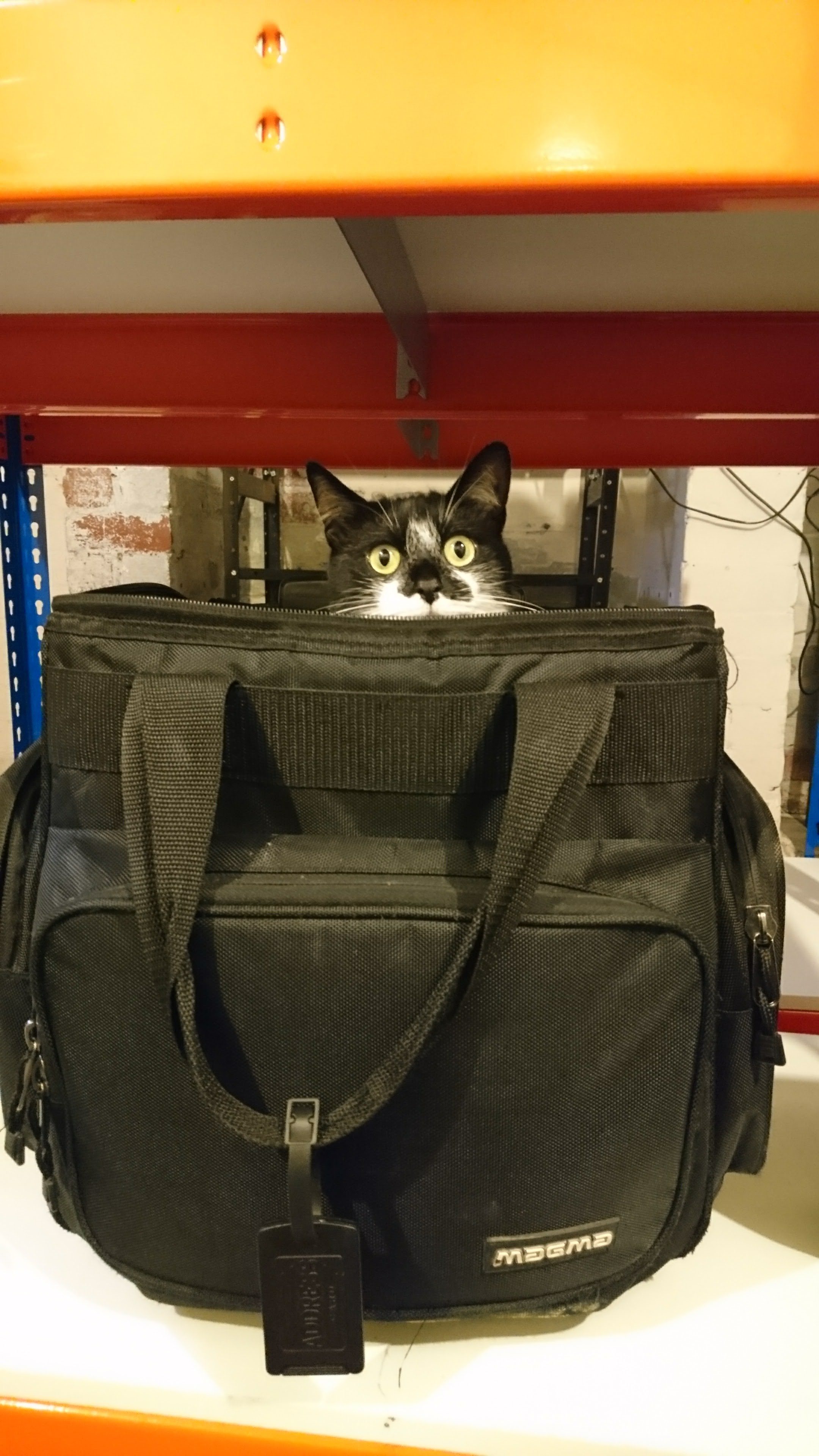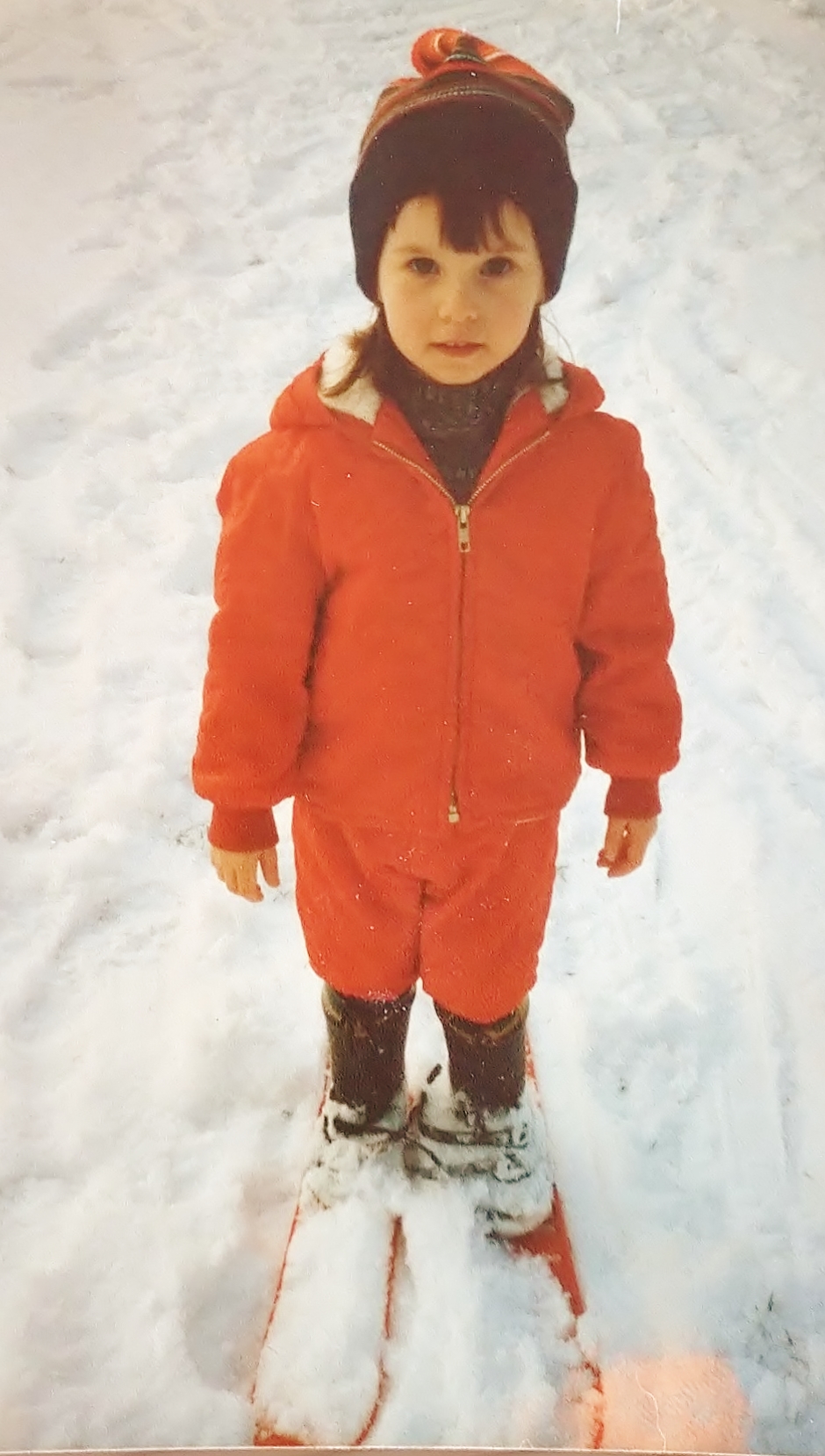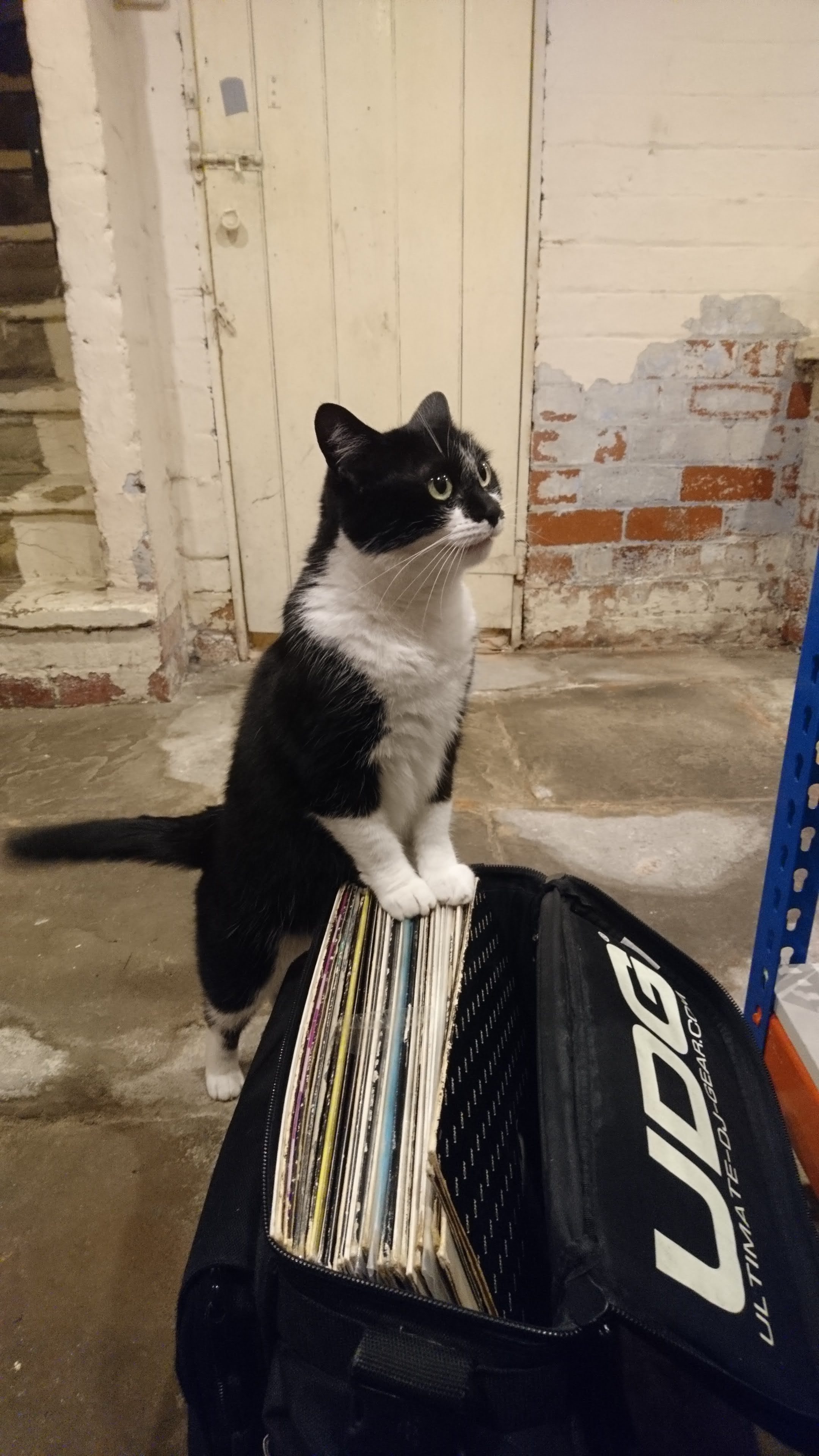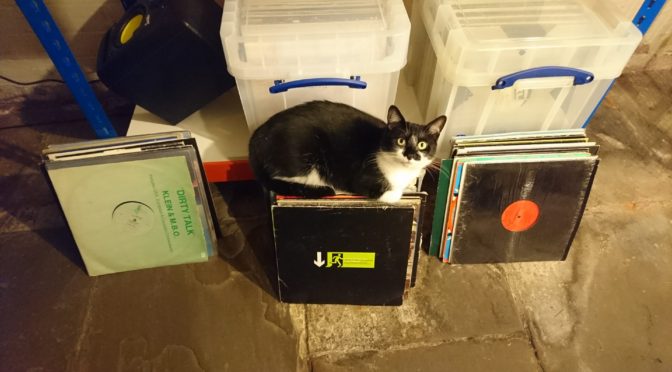Lucy Locket is one of our favourite DJs. A current member of the Love Muscle collective and former resident at Leeds’ legendary SpeedQueen parties, Lucy blends classic-era disco and house cuts into considered, soulful, life-affirming sets. We spoke to Lucy about music, memories, dance music culture and more….
*Guest appearance from Miss Frankie Knuckles.
What is your earliest musical memory and can you remember a pivotal moment when you first realised you felt really passionate about music?
I have lots of jumbled memories of living in Germany 2-4 years old involving Baby Love – The Supremes, Hands Up – Ottowan, Boney M, the Stars on 45 jingle in particular. But the clincher was receiving the Diana Ross solo album on cassette for my fourth birthday along with a silver handbag. I don’t actually remember the handbag but my sister bursts into peals of laughter about it when birthdays are mentioned because I toddled everywhere with it for a while. I listened to the title song of Why Do Fools Fall in Love so much I wore the tape out.
What was your environment like growing up, and which records made a big impact on you?
I’d say watching Top of the Pops and Sesame Street on BFBS made the biggest impact, and I don’t think I’ve moved on that much from either of those shows to be honest. Home environment living in Northumberland once in school was always very music based, mum is a brilliant pianist and classical music fan; dad loves long drives listening to the Beach Boys and Joan Armatrading; us kids were encouraged to take up music / dance / gym lessons when the opportunities came up. My sis and I pooled our pocket money to buy singles from Boots and Woolies, or the Music Shop on Bridge Street in Berwick. It must be noted that I loved then and love now, Just Another Dream by Cathy Dennis which came out in 1990.

How did your early creative development happen in terms of developing your first DJ sets and being able to say what you wanted to say through music?
I was a mixtape queen at school and sussed out that you could lead people into listening to some other songs that you wanted them to hear or thought they might like if given the chance, if you buried the song they really like halfway through side B.
Could you elaborate on moving to Leeds and playing at Speed Queen?
I remember it feeling right. I was absolutely certain about moving to Leeds for Uni (aforementioned sister who *spoiler alert* is clearly a huge influence on me, was then in her final year at York). I went clubbing loads, started buying loads more records, bought some belt drive decks and a mixer, handed a tape in to the Speedqueen shop to Suzy for a gig in the upstairs bar and got the gig. I really fell in love with i-Spy held by Kas and Suzy at NATO and then Speedqueen as they were two of a handful of spaces in my entire lifetime I have ever felt comfortable. From starting school onwards my life has been influenced largely by how awkward I feel I am and how awkward I am, so finding somewhere that is either not an issue or even, gasp, celebrated is so liberating. I learned so much about people and the human experience at SpeedQueen because I could tune in to what’s going on for everyone else for once, and I can’t thank Kas and Suzy enough for giving me that space to grow up.

This is a difficult one to answer actually because I’ve been here for such a long time and haven’t had many extended breaks from Leeds to truly notice what’s different. It’s cyclical I would say, so the ‘high street clubbing’ that was almost phased out by the time I arrived in 1995, it’s here again now – same as other cities of course. And the skyline is very different! The things I like about Leeds and the things I don’t are pretty much the same, though.
You’ve been part of the Love Muscle community for a while now. Underneath the fun and intensity of the parties themselves there seems an equally intense desire to establish a community, break down walls and to encourage people who attend to feel free, liberated, and respected. It’s anti-establishment in many ways. We (Galaxians) think that all of those things represent what dance music culture should be about. Would you agree with that?
Yes! And to celebrate, be glad we’re here, to create a dialogue about what we need, to connect. Wish that was the rule and not an exception though, don’t you?
Some of our own experiences of playing at parties and club nights is that some of the negative things people talk about experiencing at rock shows (heirarchy, sexism, whitewashing, rock star behaviour) aren’t as prevalent and it can be a more diverse, democratic, shared experience. Do you feel that yourself? Do you experience some of those same issues in dance music culture?
All of those issues are prevalent in dance music. I totally feel that, it is my lived experience of roughly 25 years of clubbing and there is plenty of evidence out there to back me up, and speak to the lived experience of minority groups I am not part of. If you look at the history of dance music and DJ culture from 1960s to present day, the inventors, innovators and community who made it happen are not the same as those who amassed / are amassing wealth from it and multiple systems of oppression see to that.
Parties and club nights that actively work towards creating safer spaces and prioritising communities (LGBTQ+ and/ or POC for example) are where there is a prevalence of diversity, democracy and shared experience. I want to see more parties and festivals out there committing to do the same work at a mainstream level, especially in these times where it’s difficult to find a piece of actual common ground which hasn’t been monetised. We can do better.
Do you feel that the DJ should always position themself behind the music, rather than being put on a pedestal?
There is room for everybody to do their thing in a way that is congruent to who they are and how they want to express themselves. That goes for the dancers too, I’ve had some brilliant nights dancing to DJs who don’t visually give themselves away (Al Kent), or deliberately finding my own corner to get my head down and rave. And I’ve had nights where I’ve actively sought out the connection with whatever is going on behind the decks or wanted to be the centre of attention on the dancefloor (that has happened twice).
That said, there is some self-interrogation to do if you’re playing music entirely composed and produced by people other than you, and how much credit you can take – or be perceived to be taking – for that. David Mancuso had the approach about right! I could go off on one here about DJing as a skill or set of skills but let’s leave that for another interview. As the wording of your question alludes to, it’s not always the DJ’s choice to be on the pedestal. I know several introverts and turbo nerds who are career DJs for whom the attention is a massive cringe they would rather do without.
 Your sets at Love Muscle are always super-soulful and fluid, and always build really nicely. Do you prepare or do you play how you feel on the night when you know what the vibe in the room is once you’ve started?
Your sets at Love Muscle are always super-soulful and fluid, and always build really nicely. Do you prepare or do you play how you feel on the night when you know what the vibe in the room is once you’ve started?
Ah, that is nice feedback! Thank you. I do prepare, and I do play to the vibe in the room. The preparation bit comes in two ways; to manage my anxiety, and also to figure out what works as I’m mostly disco and a bit of early house, so live drumming can be a bugger to work with. It helps to know and learn your cue points where the drumming is relatively stable, and the phrasing drops in the right place. I always, always overpack so I have room to go somewhere else and follow the interest.
Tell us about the Equaliser collective and the group workshops you do as part of that?
I have, sob, recently taken a step back from Equaliser. I have loads of personal stuff going on at the moment so I needed to scale back my commitments. Also it was the right thing to do in terms of ensuring the workshops meet the needs of their audience and as I am a generation older than most workshoppers, I did feel that my literally old-school approach to hosting wasn’t always appropriate or beneficial to their learning.
The collective has been going for just over 2 years and holds club nights and free-to-access DJ workshops for women, trans and non-binary people. I’d worked for Leeds Met a few years ago teaching DJing so re-used my lesson plans to set up the workshops and then did some ‘train the trainer’ sessions with others in the collective and some previous workshoppers so they can host their own and adapt the materials accordingly to suit their style and audience. Really super proud of everything we’ve achieved so far, the positive difference I can see in Leeds parties and in the way the learning is being shared beyond the collective.
What are you listening to at home at the moment?
My record collection, all over again! I’ve just moved house and now have the opportunity to set up a proper listening / living room – I’ve got some well decent speakers on long term loan from a friend (thanks Lee), a listening deck and even splashed out on some better than average speaker cable. So I’m looking forward to hearing some stuff I own in a different environment to how I had been experiencing it. I had been listening to records at home in a quite a transactional way in my old place, broadly speaking it was an internal conversation of “Is this going to work? Yes / No”, in order to figure out what I could play out at a gig. Now I can listen to it all at leisure, in a different frame of mind.

